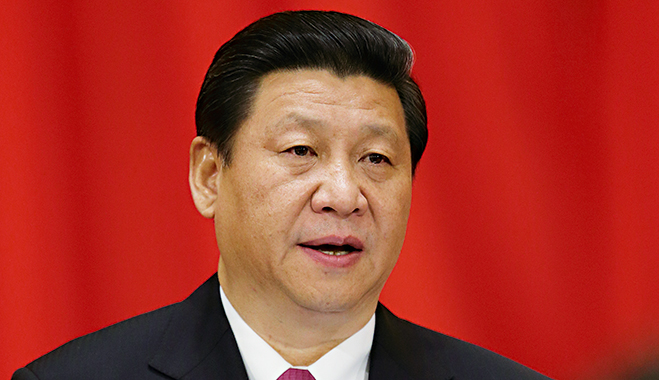
March 2013
Aged 60, communist party veteran Xi takes over the presidency with a ringing promise to rejuvenate the nation under a programme called ‘Chinese dream’. Taking control of an unusual number of portfolios, he announces an attack on corruption, a foreign policy that some see as anti-American, rapid economic reform, and a tougher line on civil obedience. His vision is nothing short of “Singapore on steroids”, according to a reporter from Foreign Affairs magazine.
April 2013
President Xi appoints like-minded Li Keqiang, son of a local party official, to replace the retiring Wen Jiabao as premier. Another communist party careerist, Premier Li once won awards for his knowledge on the thoughts of Chairman Mao. However, the number two in China’s hierarchy soon gets a reminder of the limits of his power. When one of his observations fails to reflect precisely the official line, it is quickly removed from the government sites.
Mid 2013
The new president’s crackdown on corruption takes no prisoners. As well as slashing the budget for official banquets and cars, he presides over a 30 percent increase in the number of corruption cases coming up for official review – over the full year the party punishes over 180,000 officials. The military do not escape the dragnet – a senior-ranking officer is caught selling positions in the armed forces. The going rate for a major general is reportedly $4.8m.
Late 2013
The official line becomes the truth. Billionaire bloggers Pan Shiyi [pictured] and Charles Xue, entrepreneurs with millions of followers on social media, are virtually shut down overnight. Ironically Pan had also been a vocal campaigner for the improvement of air quality in Beijing, which is something that Xi has promised to work towards. Nevertheless, the posting of ‘rumours’ on the internet can lead to a three-year prison sentence.
Early 2014
Describing foreign political concepts as unpatriotic and possibly dangerous, Beijing launches another crackdown, this time against academic research. Universities are barred from researching and teaching no less than seven catch-all topics: universal values, civil society, citizens rights, freedom of the press, privileges of capitalism and independence of the judiciary. The seventh off-limits subject is, unsurprisingly, mistakes made by the communist party.
March 2014
Beijing takes ‘internet sovereignty’ up a notch. When Malaysia Airline Flight 370 disappears, it prompts a flurry of theories on the net within China. In short order an unknown number of the theorists are arrested as part of a systemic repression of free thought. Over a four-month period the authorities suspend, delete or sanction more than 100,000 accounts on micro blogging platform Weibo for exceeding the boundaries of permissible expression.
September 2014
Hong Kong’s students erupt in anger over China’s attempts to rig local elections of the former crown colony’s chief executive in favour of its own candidates. As thousands block city centres and streets, China orders out troops and even triad members to intimidate the protesters. Although it’s a peaceful protest, many of the rebels are jailed. State-controlled media accuses the West of ‘instigating’ the protests because of the UN’s disapproval of Beijing’s measures.
2015
President Xi’s campaign against corruption could be rebounding. Many of China’s best and brightest want to emigrate. According to a local publication, more than 65 percent of Chinese citizens with assets of $1.6m upwards have either already left the country or are making plans to do so. A further 80 percent of those with $1m or more intend to send their children out of China for education. The president’s family is one of the richest in the country.


